What’s New at NIDA
NIH Simplified Review Framework for Research Project Grants (RPGs): Implementation and Impact on Funding Opportunities
The NIH is simplifying peer review for most research project grants (RPGs) for application due dates of January 25, 2025 or later. The purpose of these changes is to address the complexity of the peer review process and the potential for reputational bias to affect peer review outcomes.
This framework will facilitate the mission of scientific peer review, which is identifying the strongest, highest-impact research. This change will enable peer reviewers to better focus on answering the key questions necessary to assess the scientific and technical merit of proposed research projects.
The Simplified Framework for NIH Peer Review reorganizes the current five factors into three: 1) Importance of the research, 2) Rigor and Feasibility, and 3) Expertise and Resources. All three factors will be considered in arriving at the Overall Impact score. Simplified peer review will apply to the following activity codes: R01, R03, R15, R16, R21, R33, R34, R36, R61, RC1, RC2, RC4, RF1, RL1, RL2, U01, U34, U3R, UA5, UC1, UC2, UC4, UF1, UG3, UH2, UH3, UH5, (including the following phased awards: R21/R33, UH2/UH3, UG3/UH3, R61/R33).
Read more about the Framework.
Looking to network at a scientific conference? NIDA can help you get there!
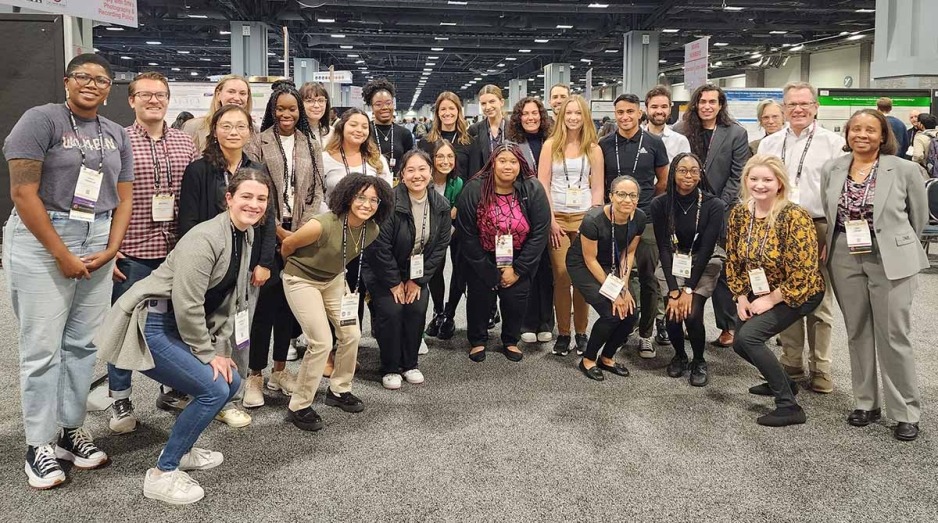
The Diversity Scholars Travel Award Program online application form is now open! The NIDA Diversity Scholars Travel Award Program helps to defray the costs of in-person attendance to national scientific conferences. Selected awardees receive $1500 for round trip meeting travel, lodging, and/or registration. Over the past 6 months, NIDA has provided awards for scholars attending the Society for Neuroscience and the Society for Research on Nicotine and Tobacco meetings.
If you are a budding investigator looking to present your NIDA-related research at a major national conference, and would benefit from assistance with travel expenses, consider applying for an award. To be eligible, you must have submitted an abstract for presentation at one of the following 2024 scientific conferences:
- The College on Problems of Drug Dependence (CPDD): June 15th –19th in Montreal, Quebec, Canada
- The American Psychological Association (APA): August 8-10th in Seattle, WA
- The National Hispanic Science Network International Conference (NHSN): October 3-5th in New Orleans, LA
- The Society for Neuroscience (SfN) Meeting: October 5-9th in Chicago, IL
Deadlines to apply for a NIDA Travel Award:
- CPDD – April 19, 2024, 11:59PM EST
- APA – May 31, 2024, 11:59 EST
- NHSN/SfN – July 12, 2024, 11:59PM EST
Stay tuned as we plan to offer travel awards for the 2025 SRNT meeting. To learn more about eligibility and the application process, please see the travel award website. Questions? Contact Dr. Yohansa Fernández.
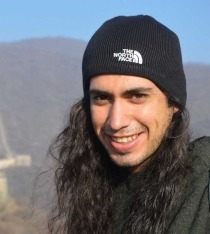
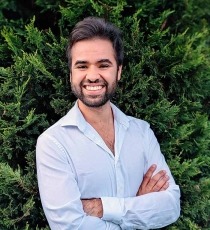
NIDA Diversity Scholars Travel Award Program Testimonials
ORTDD is thrilled to introduce two NIDA Diversity Scholars Travel Awardees, Emmanuel Alvarez, PhD candidate in Neuroscience and a NIDA F31-diversity fellow at Robert Wood Johnson Medical School and Troy Dildine, Postdoctoral Scholar at Stanford University. Both Emmanuel and Troy presented at the 2023 Society for Neuroscience (SfN) conference and share their experiences on the NIDA travel award website!
NIDA Scholar Spotlight: Amelia Cuarenta
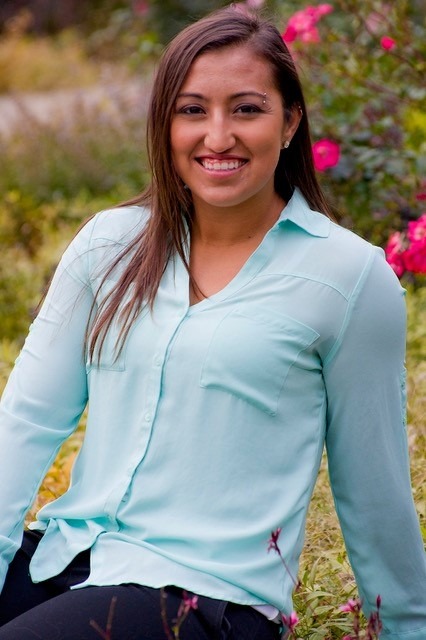
The ORTDD would like to spotlight Dr. Amelia Cuarenta, postdoctoral research associate at the Center for Behavioral Neuroscience at the Georgia State University. Dr. Cuarenta was a 2023 NIDA Diversity Scholars Network program participant and recent MOSAIC K99/R00 awardee.
Please share a little about yourself and your upbringing (if you're comfortable doing so), your educational background, and research focus.
My name is Amelia Cuarenta and I am from Milwaukee, WI. I was raised in a low-income single parent household. My interest in science and academia began when I was a child and watched my mother pursue a college education while working. Following this interest, I pursued a B.S. in Psychology and Human Development from the University of Wisconsin-Madison. I continued my education at the University of Wisconsin-Madison and earned my M.A. and Ph.D. in Biopsychology in the lab of Dr. Anthony Auger where we studied the impact of gene x environment interactions on later adolescent behavior.
At what point in your life did you know you wanted to become a scientist? What drew you to the STEM field and particularly substance use/addiction research?
I realized I wanted to be a scientist my junior year of college. I had taken plenty of science courses by that time, but I still hadn’t found exactly what I wanted to do for my career. Then, junior year, I took a course called Behavioral Genetics, Genomics, and Epigenetics which completely changed my career trajectory. This course was my “lightbulb” moment and I wanted to continue research within this field. I approached one of the professors teaching the course to inquire about joining his lab, and was offered a position as an undergraduate research assistant. I continued in this lab for 2 years and applied to graduate schools across the country. I decided to stay at the University of Wisconsin because I was in a wonderful lab doing the research I always wanted to do. I was always interested in the impact of early life adversity on later development with a specific interest in adolescence and early adulthood. In graduate school I was particularly interested in the rewarding nature of juvenile social interactions. When looking for a postdoctoral position I knew I wanted to stay within the behavioral neuroscience field, but I was becoming increasingly interested in other types of reward. Thus, I took a position with Dr. Debra Bangasser to investigate the impact of psychosocial stress on opioid use patterns.
Were there any events or individuals who inspired you throughout your professional journey?
My mom has always been my biggest inspiration. Watching her work ethic while I was growing up inspired me to also work hard. She was a single mom, worked as a waitress, and went to school to try and give us a better life. Her sacrifice and perseverance motivated me to do the best I am capable of with the intention of giving back to my family.
How did you learn about the NDSN Program? Please share about your experience as an NDSN scholar and major takeaways from participating in the program.
I learned about the NDSN program through email communication on one of the listservs I’m part of. Participation in the NDSN scholar program was such a great experience. Being a postdoc, there are a lot of things I am still learning about the grant application process. The NDSN program broke down a lot of this information so I had a better understanding of the entire process and how to package my grant application. I have to say the mock review was an amazing experience and I learned so much! The program is great, but the mock review put it over the top for me. I learned so much that day!
What has been the most challenging obstacle you have had to face throughout your career journey to becoming a scientist and what have you done to push through?
One of the challenging obstacles I’ve faced in my career is lack of representation and having to continuously prove that I belong in spaces. As a biracial LGBTQIA+ neuroscientist, I have personally experienced the isolation that comes from limited outward facing representation within academia. Especially when I was a younger trainee, the need to continuously prove myself and prove I was smart enough, good enough, etc. to be in the academic space was tiring. Dealing with this facet of academia is ever evolving for me, but what has helped is finding allies and mentors that support me and my career goals. Having a mentors and peers that believe in you and boost your confidence can be a game changer. Being part of peer groups with diversity at the forefront can also be incredibly helpful. NDSN is one example of this, and throughout this program I got to meet other scholars and grow my network and community.
Can you offer any advice to ESIs/scholars in earlier career stages who are navigating the NIH process for submitting grants and working towards the goal of being independently funded?
I am still in this process myself as a postdoc, so there’s still a lot I’m learning. What I have learned so far that has been helpful is identifying a network of mentors that can support your project. For my K99 I have a mentoring committee and each person on the committee has a specific expertise that fills certain gaps in my training. Identifying those mentors early and reaching out to them early is really important. The other thing that I think is incredibly important is writing and re-writing. I had so many people give me feedback before submitting and that was invaluable. The first draft to the last draft are very different in terms of how the information is presented. One other thing I just thought of that a mentor of mine told me: Don’t make the reviewers work for it. Give it to them on a platter. Make it easy for them to understand why your work is important, innovative, and technically sound.
Congratulations 2024 NIDA Diversity Scholars Network (NDSN) Program Scholars!
NIDA received a record high number of NDSN scholar applications in 2024, and we are proud to announce that we will support 16 spectacular scholars this year. The scholars come from a variety of institutions all over the U.S., such as University of Mississippi, Tulane University, University of Vermont, Tennessee State University, University of Chicago. This year’s scholars are canvassing an exceptionally wide range of research areas, and NIDA’s ORTDD is eager to witness what this cohort will achieve. Learn more about the NDSN program and consider applying for the 2025 program in November, 2024.
Time is running out to apply for FY2024!
NIDA Diversity Supplement Program
NIDA participates in the NIH diversity supplement program, funding administrative supplements to active NIDA grants in order to provide research and professional development opportunities to trainees and early career scholars. The goal of the program is to improve the diversity of the research workforce; graduate students, postdoctoral students, and eligible early career investigators from diverse backgrounds, including those from groups demonstrated to be underrepresented in the biomedical, behavioral, clinical and social sciences, are eligible to apply. All areas of NIDA-relevant research are eligible for diversity supplement support, including HIV/AIDS-related grants.
There are multiple Diversity Supplement Programs to consider, depending on the NIH program that funds the “parent” (i.e., funded, eligible base grant award). For example, the parent grant may be funded by the NIH Helping End Addiction Long-term (HEAL) Initiative, the Brain Research through Advancing Innovative Neurotechnologies (BRAIN) Initiative, or the NIH Tobacco Regulatory Science Program (TRSP). NIDA also provides funds for diversity supplements linked to other grant awards funded by the institute. All of these programs are designed to provide support that will help launch the careers of scientists, including underrepresented scientists, in addiction research.
Please note: HEAL awardees must apply to PA-23-189 through NOT-NS-20-107 (receipt date: May 15th). BRAIN Initiative awardees must apply to PA-23-189 through NOT-NS-22-012. TRSP awardees must apply to PA-23-189 through NOT-OD-24-074 (receipt date: May 15th). Be sure to follow all instructions for these announcements.
If you are planning to apply for diversity supplement support through NIDA, but the parent award is not funded through HEAL, BRAIN or TRSP, the application must be submitted by May 9, 2024 to be considered for funding during the 2024 fiscal year.
Applicants interested in the Diversity Supplement programs are encouraged to carefully review PA-23-189, relevant Notices (links above), and the NIDA Diversity Supplement Program webpage, FAQs, and How to Apply. Applicants are also encouraged to contact Dr. Angela Holmes with any questions well in advance of the submission deadline.
NIDA, NIMH, and NINDS Research Opportunities for New and "At-Risk" Investigators to Promote Workforce Diversity (R01 Clinical Trial Optional)
NIDA is encouraging applications to PAR-22-181. This funding opportunity solicits R01 grant applications from New Investigators and "At-Risk” Investigators from diverse backgrounds, including those from groups underrepresented in the health-related sciences (e.g., see NOT-OD-20-031, Notice of NIH’s Interest in Diversity). For more information about eligibility and how to apply, visit the link above and NIDA's Diversity R01 for New and "At-Risk" Investigators.
Due Dates for New Applications:
May 06, 2024; September 06, 2024; January 08, 2025; May 05, 2025
Due Dates for Resubmission Applications:
June 06, 2024; October 08, 2024; February 06, 2025; June 06, 2025
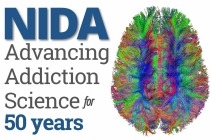
Happy 50th Anniversary NIDA!
On May 14, 1974, Congress established the National Institute on Drug Abuse (NIDA), and since then NIDA has led the world in funding and conducting research on substance use and addiction. Read more on Nora’s blog.
Did you know?
NIH has an “All About Grants Podcast”
The NIH All About Grants Podcast is a helpful resource that The Office of Extramural Research (OER) talks to NIH staff members about the ins and outs of NIH funding. Designed for investigators, fellows, students, research administrators, and others just curious about the application and award process, they provide insights on grant topics from those who live and breathe the information.
The most recent episode on February 23 featured Dr. Kenneth Gibbs, Chief of the Undergraduate and Predoctoral Cross-Disciplinary Training Branch at the National Institute of General Medical Sciences and Dr. Maria Carranza, Senior Training Officer with the National Institute on Aging. Part 1 of this NIH All About Grants podcast mini-series dives into considerations for developing training grant applications and the review process, and part 2 focuses on post-award monitoring, mentorship, and provides insights for trainees. The discussion focuses on Kirschstein-National Research Service Awards (T32 and T34), but the advice is generally applicable to other training grant programs. Give this podcast a listen!

